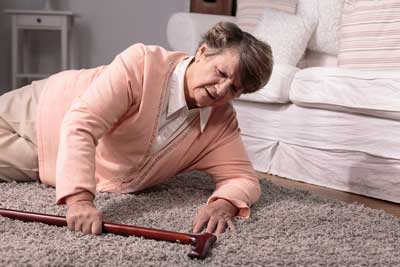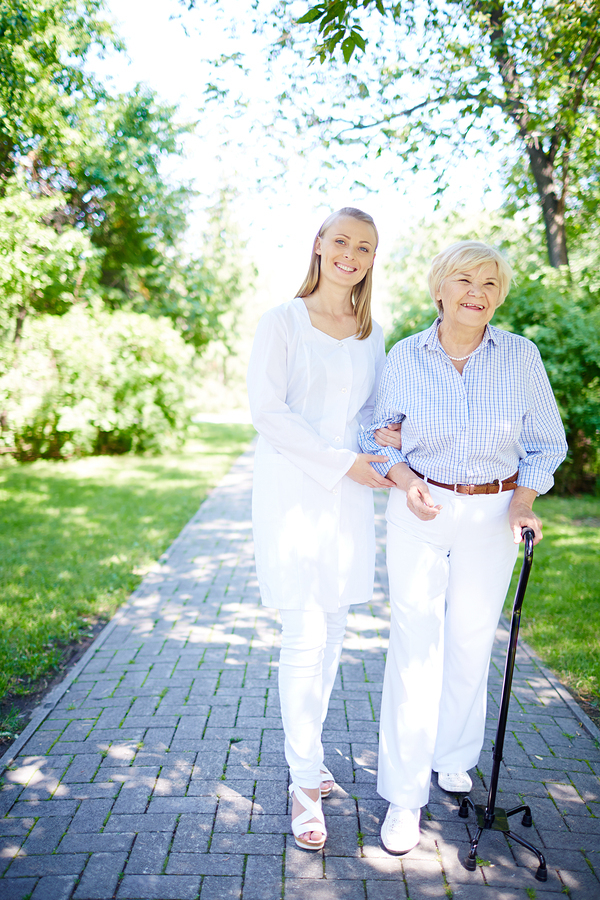5 Tricks Senior Care Providers Use to Avoid Stress & Stay Positive
[fa icon="calendar'] Aug 8, 2016 2:29:32 PM / by First Choice posted in In-Home Health Care, Senior Care, Caregiver, Professional Caregiver
In some cases, professional caregivers may also encounter significant resistance from a patient who is having trouble adjusting to his or her changed circumstances. Occasionally, this resistance manifests itself in the form of anger or irritability displayed inappropriately toward the caregiver. This, too, can be stressful.
Help with Senior Care Means You Can Have More Quality Time with Your Loved One
[fa icon="calendar'] Jul 29, 2016 10:00:00 AM / by First Choice posted in In-Home Health Care, Senior Care, Questions
Becoming the primary caregiver for a loved one whose physical or mental health is declining is more than just a challenging job. It is a series of challenging jobs.
You may find yourself on any given day handling transportation to and from medical appointments, helping your parent keep track of a complicated drug regimen, cleaning your parent's home, preparing meals for your loved one, and helping him or her with other activities of daily life. All of these are necessary activities, and are added to the responsibilities you already have for your own household.
Warning Signs That Your Loved One Could Benefit from Home Health Care
[fa icon="calendar'] Jul 13, 2016 9:30:00 AM / by First Choice posted in In-Home Health Care, Senior Care, Caregiver
Life's transitional moments have a way of sneaking up on you. While your loved one may seem perfectly fine living independently one moment, in a short time, that can change. For many family caregivers, the difficulty is in seeing exactly when that change occurs.
Unless there is a particular precipitating event, like a debilitating illness or injury, the changes that occur are often so subtle that they go undetected for a time by even the most caring of family members. Added to that, many seniors try to mask the difficulties they are having performing activities of daily living on their own in an attempt to spare their caregivers from anxiety.
Here, then, are some signs that can help you detect when it is time to find support for your loved one with home health care services:
Choosing the Home Health Care Agency That's Right for Your Career
[fa icon="calendar'] Jul 5, 2016 7:30:00 PM / by First Choice posted in In-Home Health Care, Caregiver
If you are considering a career in-home health care, there are a number of factors you must weigh when choosing a quality home health agency with which to work. The reality is that not all home care agencies are created equal, and some offer substantially better pay, benefits, and tools to help you thrive as a home care worker.
With the goal of finding an agency that is a good fit for you, here are some important things to consider:
5 Things You Need to Know About Choosing an In-Home Care Provider
[fa icon="calendar'] Jun 29, 2016 4:00:00 PM / by First Choice posted in In-Home Health Care, Aging, Caregiver
Rooted in Place
This sentiment makes sense. The concept of moving into a different community and a new living arrangement can create anxiety at any age. However, especially in the case of seniors, pulling up roots and making such a change is often an overwhelming prospect.
For many seniors, the homes in which they live are the homes where they raised families, where they invested their time and resources, and where they developed close friendships with neighbors. Leaving all of that behind in favor of a new, sometimes radically different environment holds little appeal.
Additionally, from a purely physical perspective, the thought of moving to a new home is an exhausting one, as seniors consider how to dispose of a lifetime's accumulation of clutter to live comfortably in the smaller space common in assisted living communities.
Retirement Planning and Home Healthcare Options
[fa icon="calendar'] Jun 23, 2016 6:30:00 PM / by First Choice posted in In-Home Health Care, Aging, Caregiver
Home is where the heart is. At least, that appears to be the case for Baby Boomers now entering their retirement years. Unlike older generations, Baby Boomers expect to live independently much longer than their predecessors, and intend to use all tools at their disposal to do so.
USA Today's "Retirees Embrace Ways to Stay Put, Age in Place" notes that the vast majority of people aged 50 or older want to stay in their homes for as long as possible. The article observes: "They want to age in place, continuing to live in their home or at least in the same community. And they're not afraid to remodel and try new technologies to make that happen."
Some of the technologies available to help seniors age in place are:
- smart homes
- personal emergency response systems
- telemedicine
- health monitoring devices
A Home Healthcare Worker Can Help Your Loved One Live a More Active Lifestyle
[fa icon="calendar'] Jun 15, 2016 3:30:00 PM / by First Choice posted in In-Home Health Care, Caregiver, Keeping Active
The process of aging takes an undeniable toll on a body. Does that mean, however, that an active lifestyle is no longer an option for your loved one?
The answer to that question is a definitive "no." In reality, leading an active lifestyle can be more important than ever as people age.
The Benefits of Exercise and an Active Lifestyle
HelpGuide.org's "Exercise and Fitness as You Age" observes: "Regular exercise can help boost energy, maintain your independence, and manage symptoms of illness or pain. Exercise can even reverse some of the symptoms of aging. And not only is exercise good for your body, it's also good for your mind, mood, and memory."
In addition to structured exercise like weight training or cardio, seniors can derive much benefit from simply maintaining an active lifestyle. Taking a walk in the park, gardening, and generally moving more are all ways to tap into the body's potential to heal and support itself both physically and mentally.
Homecare Can Relieve You of Worries About Wandering Behaviors in Your Senior
[fa icon="calendar'] Jun 9, 2016 6:00:00 PM / by First Choice posted in In-Home Health Care, Aging, Senior Care
According to the Alzheimer's Association, six in 10 people with dementia will wander. Wandering can occur at any stage of the disease, making it necessary for caregivers to take precautions to both reduce the likelihood of wandering behaviors and handle wandering incidents correctly if they should occur.
Why Dementia Patients Wander
Dementia patients can wander for a variety of reasons. The Mayo Clinic lists several common triggers for wandering. They include:
- Stress or fear: Some dementia patients experience stress or fear in unfamiliar surroundings, or in places where overstimulation of their senses occur (ie. loud noises or overly bright lighting).
- Searching: In many cases, dementia patients may be searching for an item they have lost, and wander away from a safe environment before they are aware of doing so.
- Boredom: Occasionally, a dementia patient may wander in search of something new to do or see.
- Attempting to care for a basic need: A dementia patient may be trying to care for a basic need like finding a bathroom or finding something to eat when he or she becomes confused and begins to wander.
- Following a past routine: In some instances, a dementia patient may be trying to go to a place or activity with which he or she is familiar (ie. going to a previous job or favorite store).
Homecare, Technology, and Innovative Solutions
[fa icon="calendar'] May 31, 2016 8:30:00 AM / by First Choice posted in In-Home Health Care, Special Needs, Caregiver
Baby Boomers, now entering headlong into their retirement years, are even more intent on aging in place than were previous generations. Huffington reports: "The old standard of retiring and shuffling off to a retirement community is being re-written by baby boomers who want to enjoy their homes, embrace their communities and age in place as long as they can."
The Benefits of Homecare
Seniors with this mindset find home health care to be an increasingly attractive option. Home health care enables seniors to:
- remain in familiar and comfortable environments
- maintain a sense of control and autonomy
- maintain cherished ties to nearby family and community
- access highly personalized care from professional care providers
In addition to providing seniors assistance with activities of daily living, homecare providers can also help seniors with household chores, shopping, transportation, and medication support. Working with a homecare provider provides peace of mind for seniors and their families by assuring all involved in caregiving that the needs of seniors are being consistently and competently met.
Home Healthcare and Successful Aging in Place
[fa icon="calendar'] May 25, 2016 7:30:00 AM / by First Choice posted in In-Home Health Care, Aging, Senior Care
More than 90 percent of older adults would prefer to age in place rather than move to senior housing, according to the National Aging in Place Council (NAIPC).
While retirement communities and assisted living facilities use the term "aging in place" to signify moving into a senior living community which offers the option of moving from one level of care to another within the community, the Centers for Disease Control and Prevention (CDC) notes that at its most basic, aging in place refers to "the ability to live in one's own home and community safely, independently, and comfortably, regardless of age, income, or ability level."










